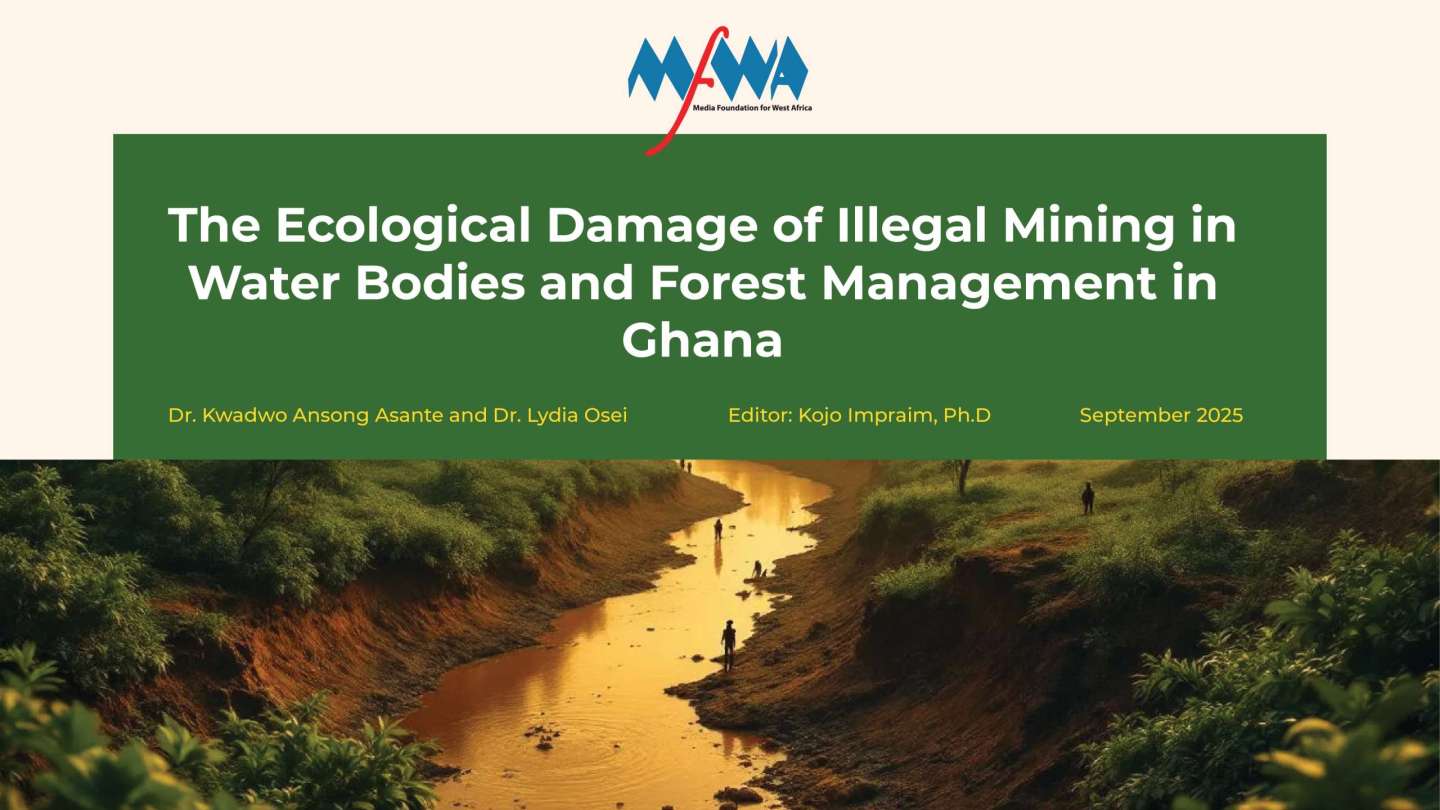Ghana’s democracy has gradually shifted into deep political polarisation, especially between the two dominant parties—the NDC and NPP. This has fuelled a “winner-takes-all” governance culture, entrenched patronage systems, and policy paralysis on critical national issues. One of the most pressing victims of this paralysis is the fight against illegal small-scale mining, commonly known as galamsey.
Despite numerous laws and repeated government interventions, illegal mining continues to devastate the environment, pollute water bodies, degrade farmlands, and threaten livelihoods and food security. The situation is further complicated by the political influence of individuals who finance both mining and major political parties, making decisive action both sensitive and costly.
To respond to this crisis, the Media Foundation for West Africa (MFWA), in partnership with the National Peace Council (NPC), National Commission for Civic Education (NCCE), and other key state, traditional, and religious institutions, is implementing the project: “Breaking the Gridlock: Resolving Polarisation-Induced Policy Paralysis in Ghana.” A major component of this initiative is the High-Level National Dialogue on Mobilising Citizens’ Consensus on Solutions to the Galamsey Crisis, scheduled for 28–29 October 2025.
As part of the dialogue preparations, five expert research papers were commissioned to provide evidence-based analysis and inform discussions. These papers focus on the impacts of illegal mining on the environment, water resources, agriculture, health, forest reserves, and peace and security.
About this report
Ghana faces an unprecedented environmental crisis due to illegal small-scale mining activities, commonly known as “galamsey”. This rampant practice has devastated vast areas of the country’s landscape, contaminated water bodies (about 60%) and degraded fertile soils through the indiscriminate use of toxic chemicals like mercury, cyanide, arsenic and lead. These pollutants have rendered many water sources unsafe for drinking (without treatment), irrigation, or aquatic life, bioaccumulating in fish and entering the human food chain. The consequences extend beyond environmental damage to threatening public health, food security, and the livelihoods of millions who depend on these natural resources.
Despite its socio-economic relevance, illegal small-scale mining is a double-edged sword. While it offers significant livelihood opportunities to millions, its unregulated nature generates severe ecological repercussions that derail development. Environmental contamination by exploitation of gold has become a serious problem in Ghana, and presently illegal small-scale mining seems to be better known for its deleterious effects on the environment than for its socioeconomic importance. The ecological impact of illegal mining is so dire that it overshadows any potential benefits the sector offers. For the purpose of this undertaking, the focus is an in-depth analysis of the negative ecological implications of illegal mining in Ghana.
Download the report here.






